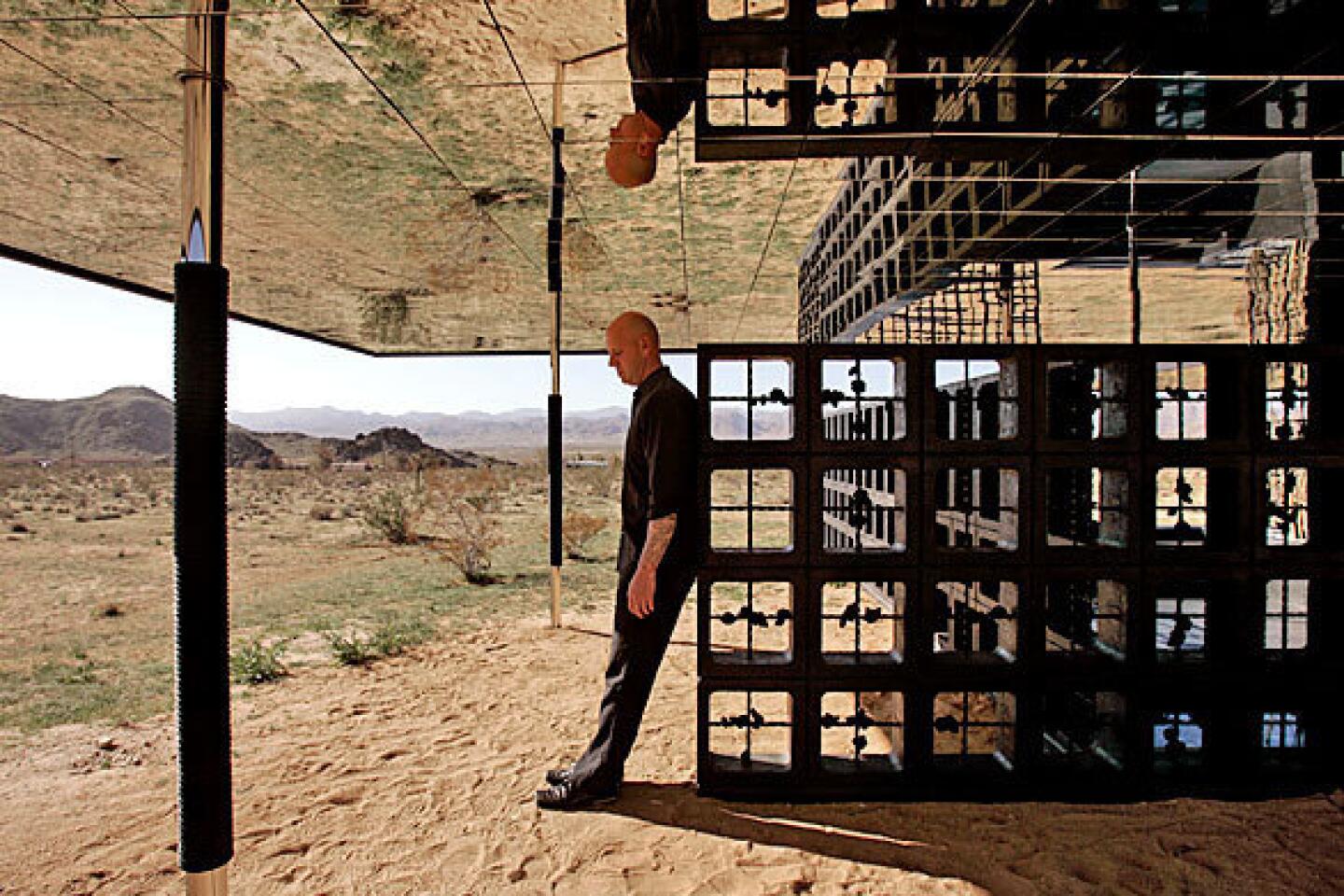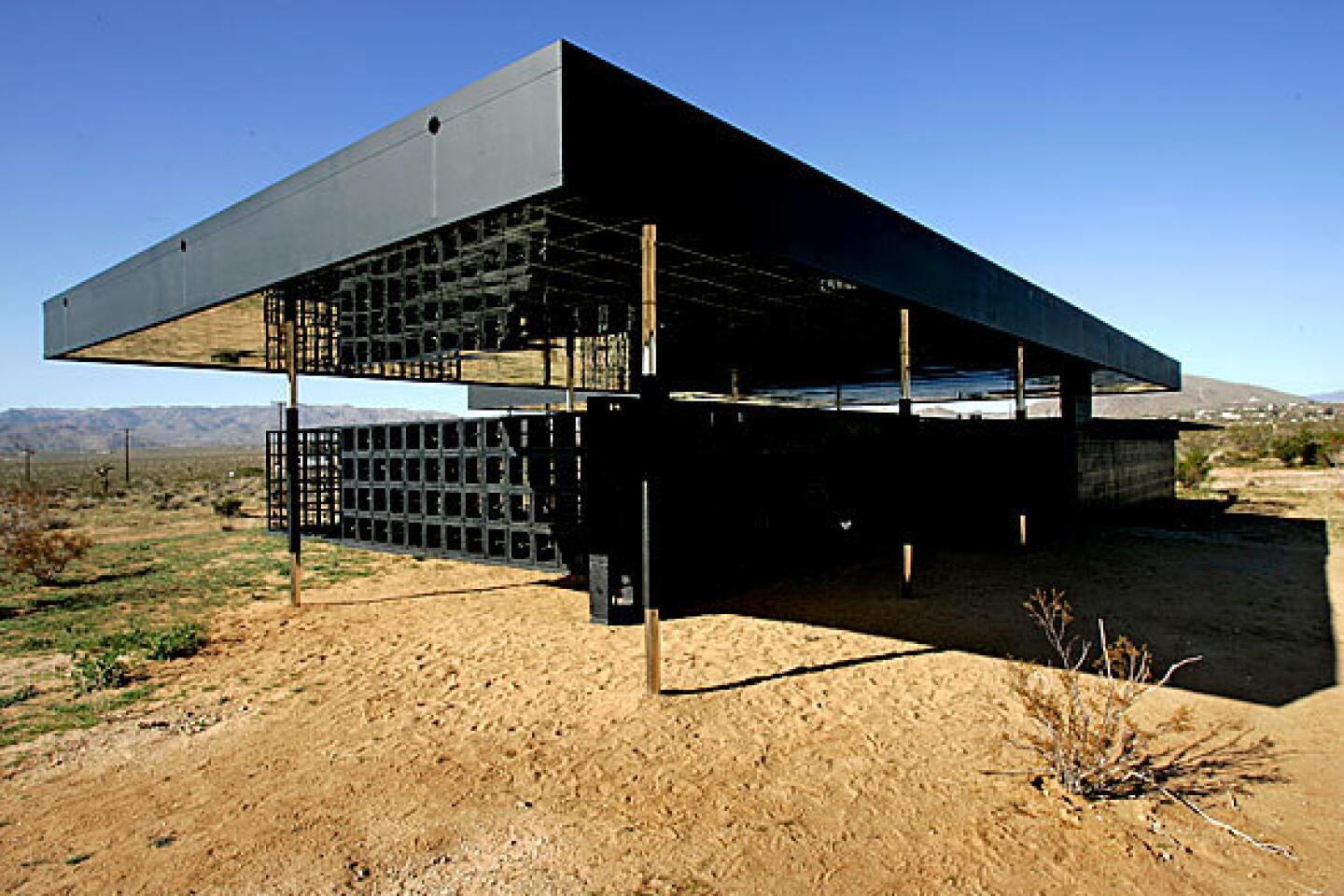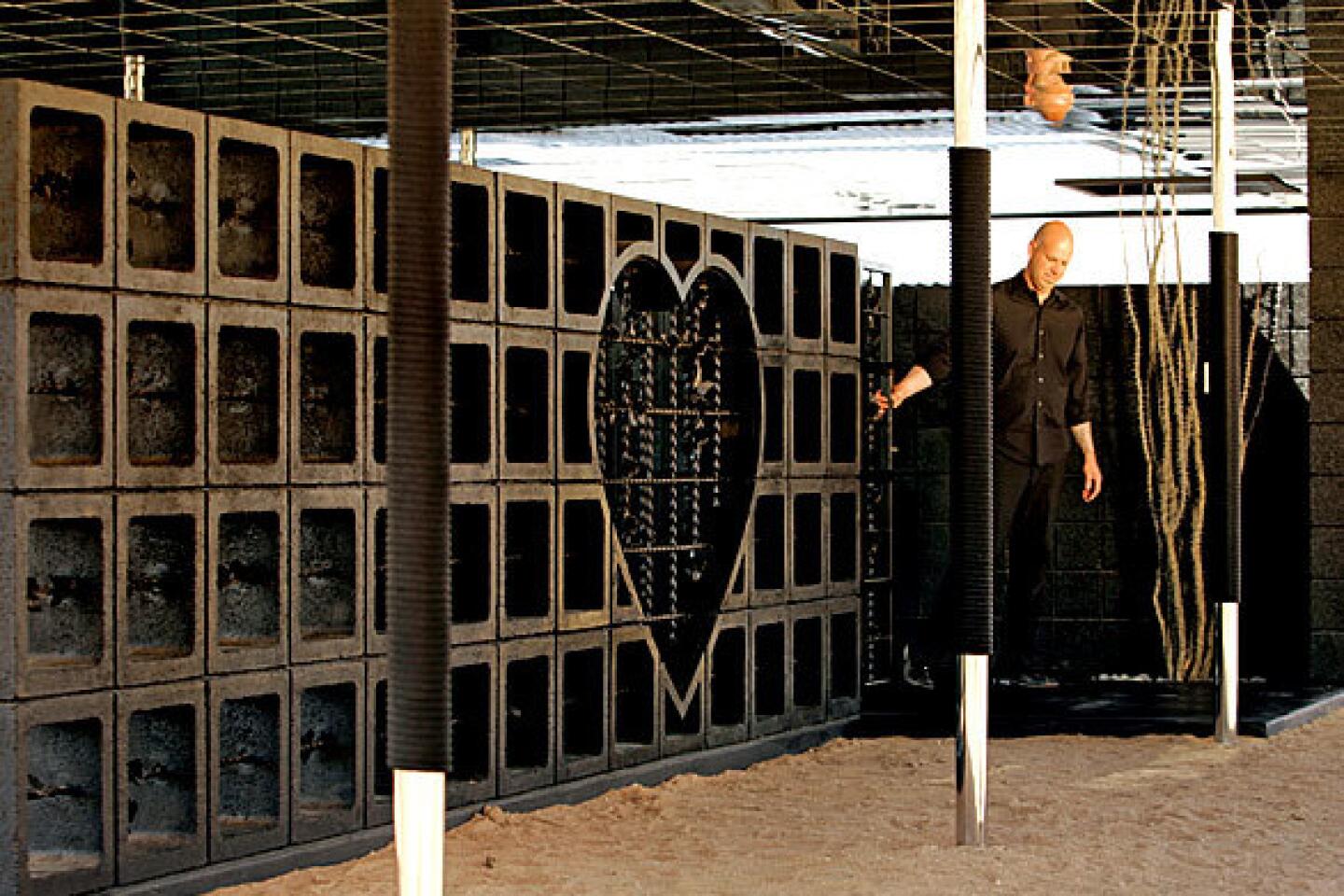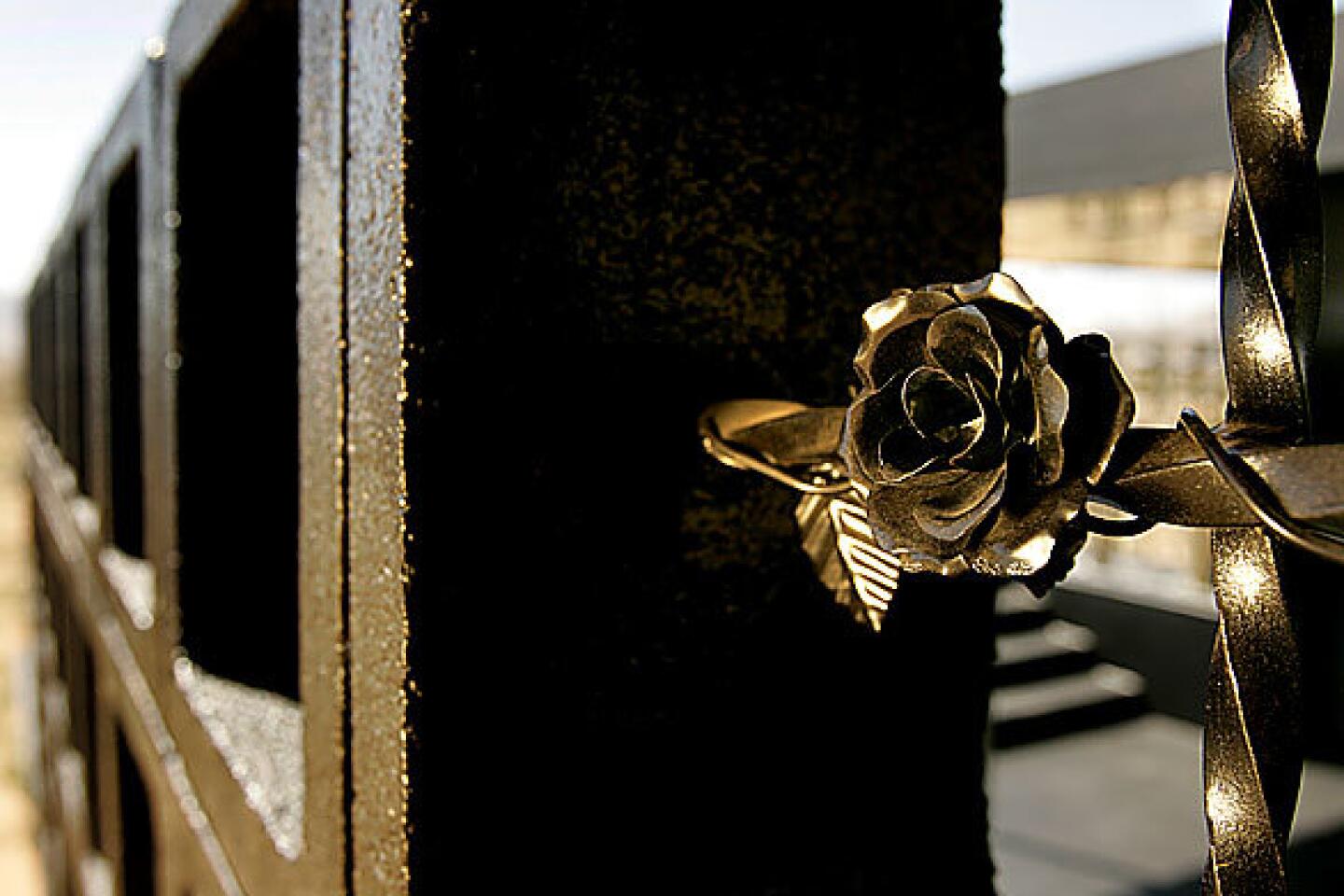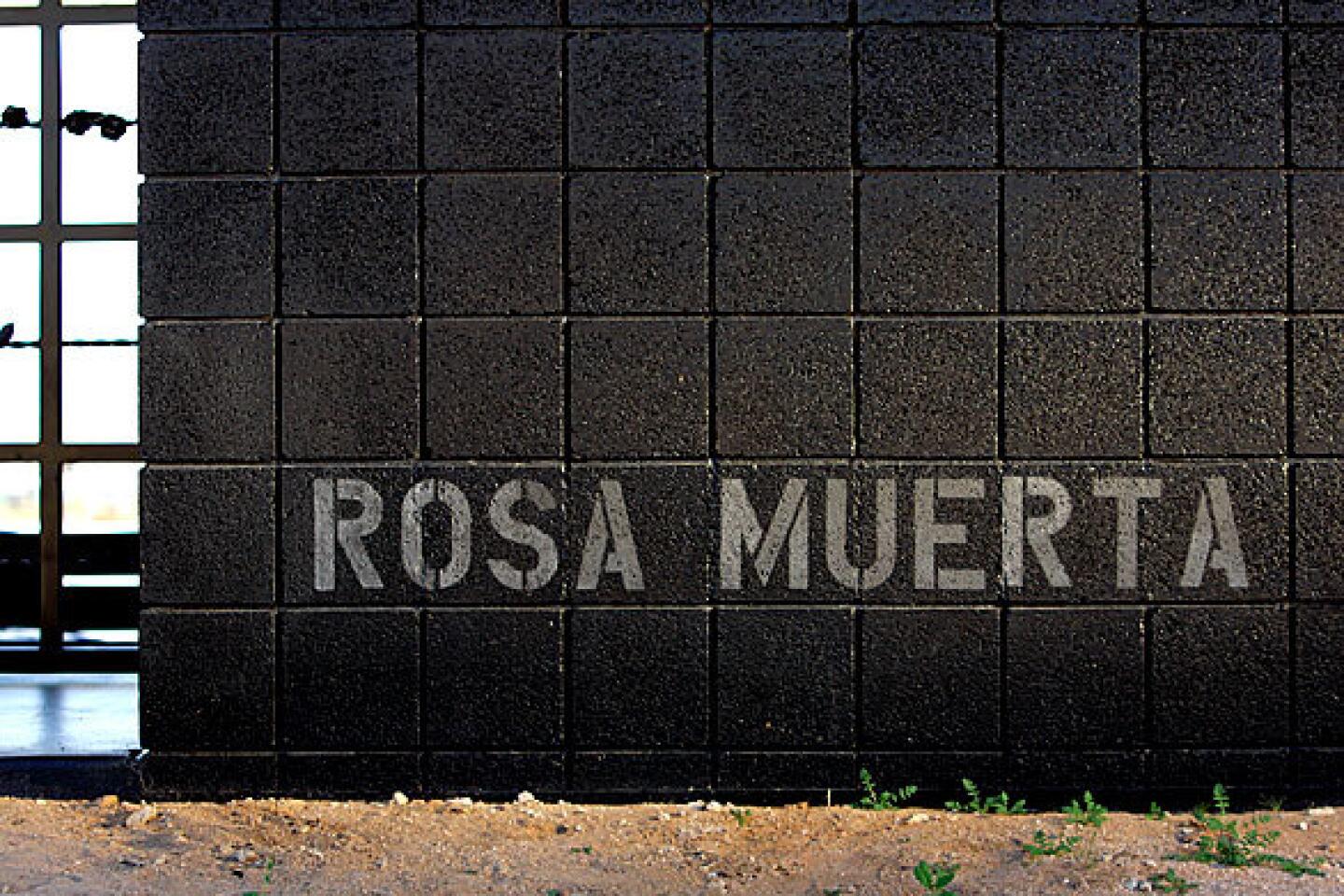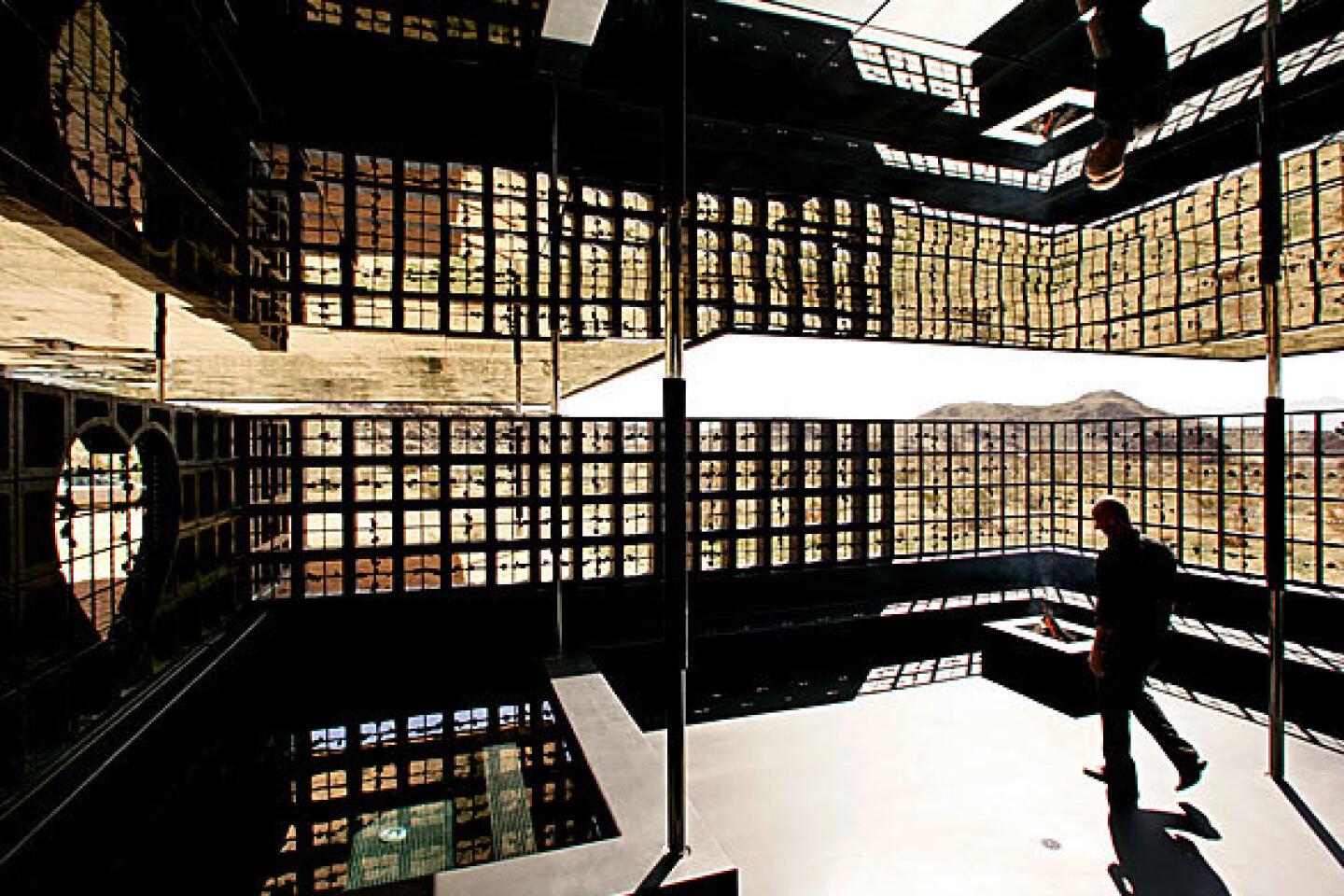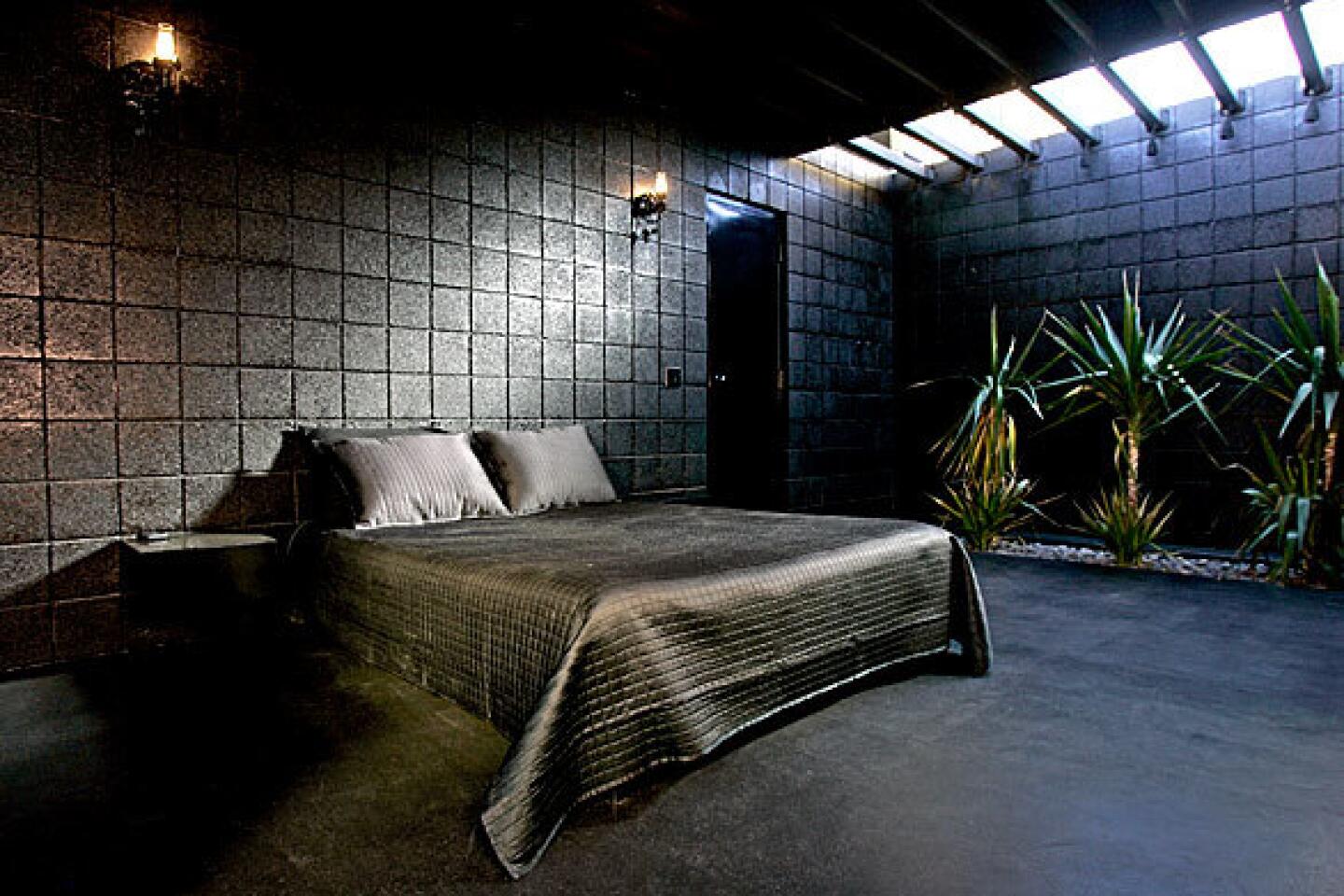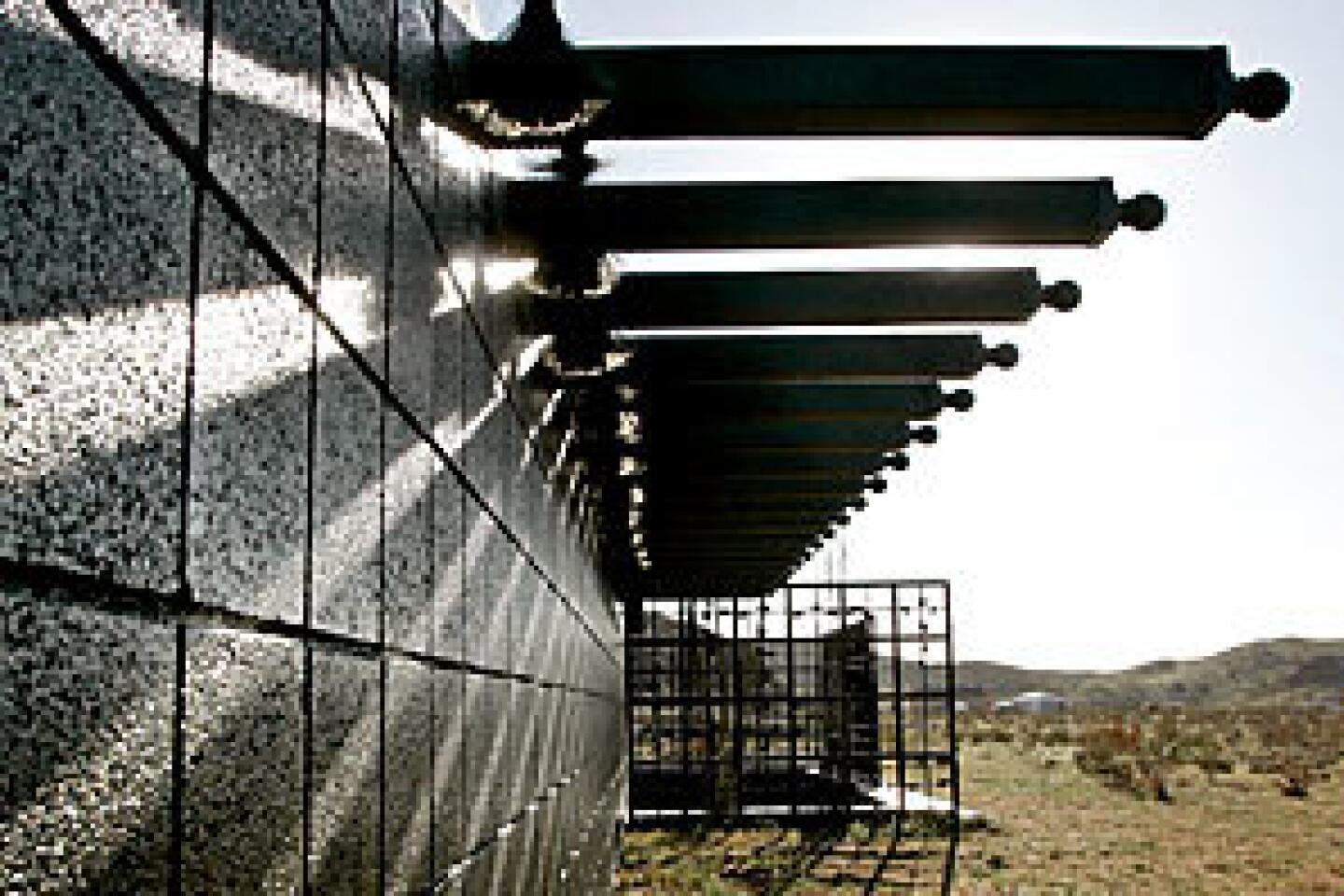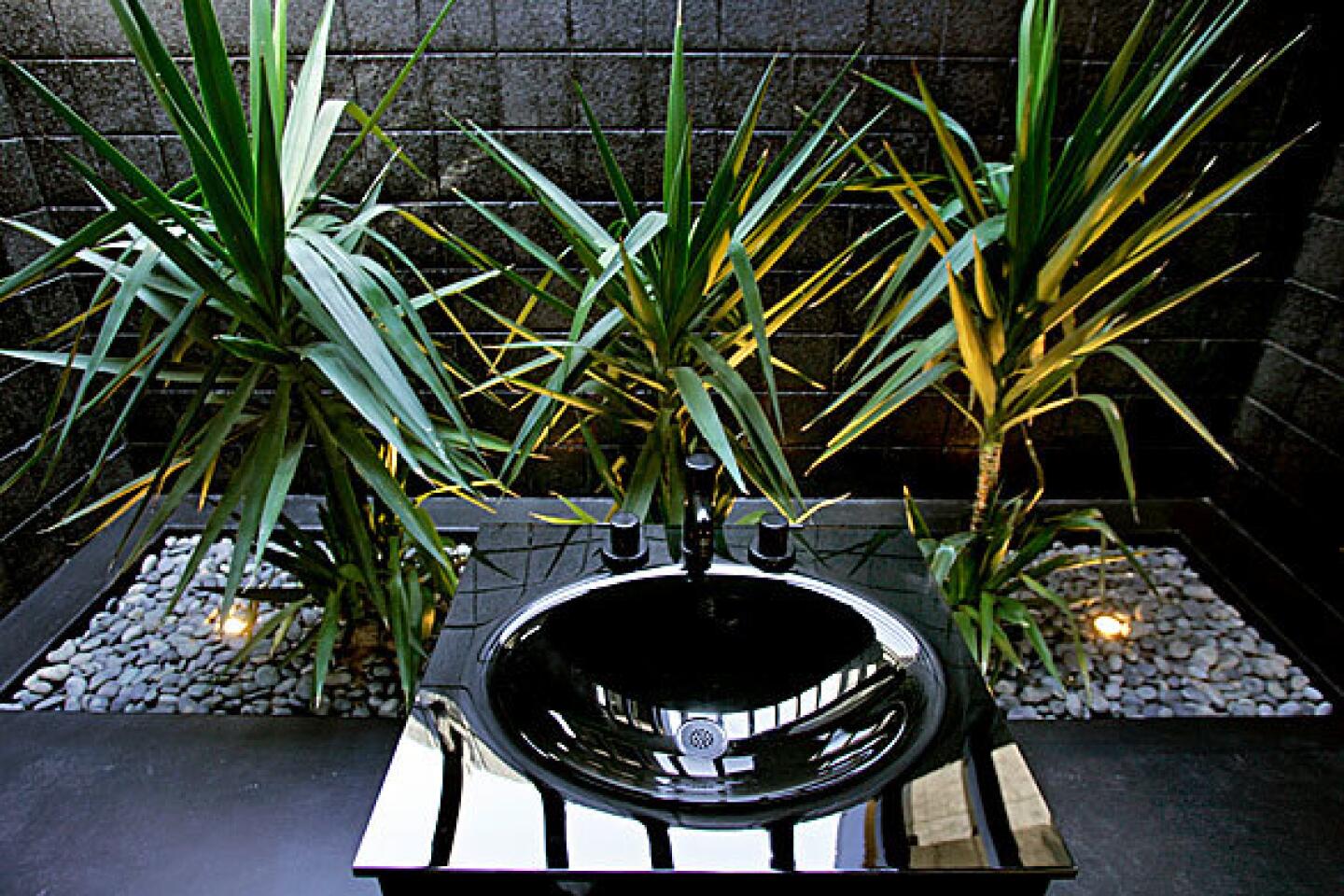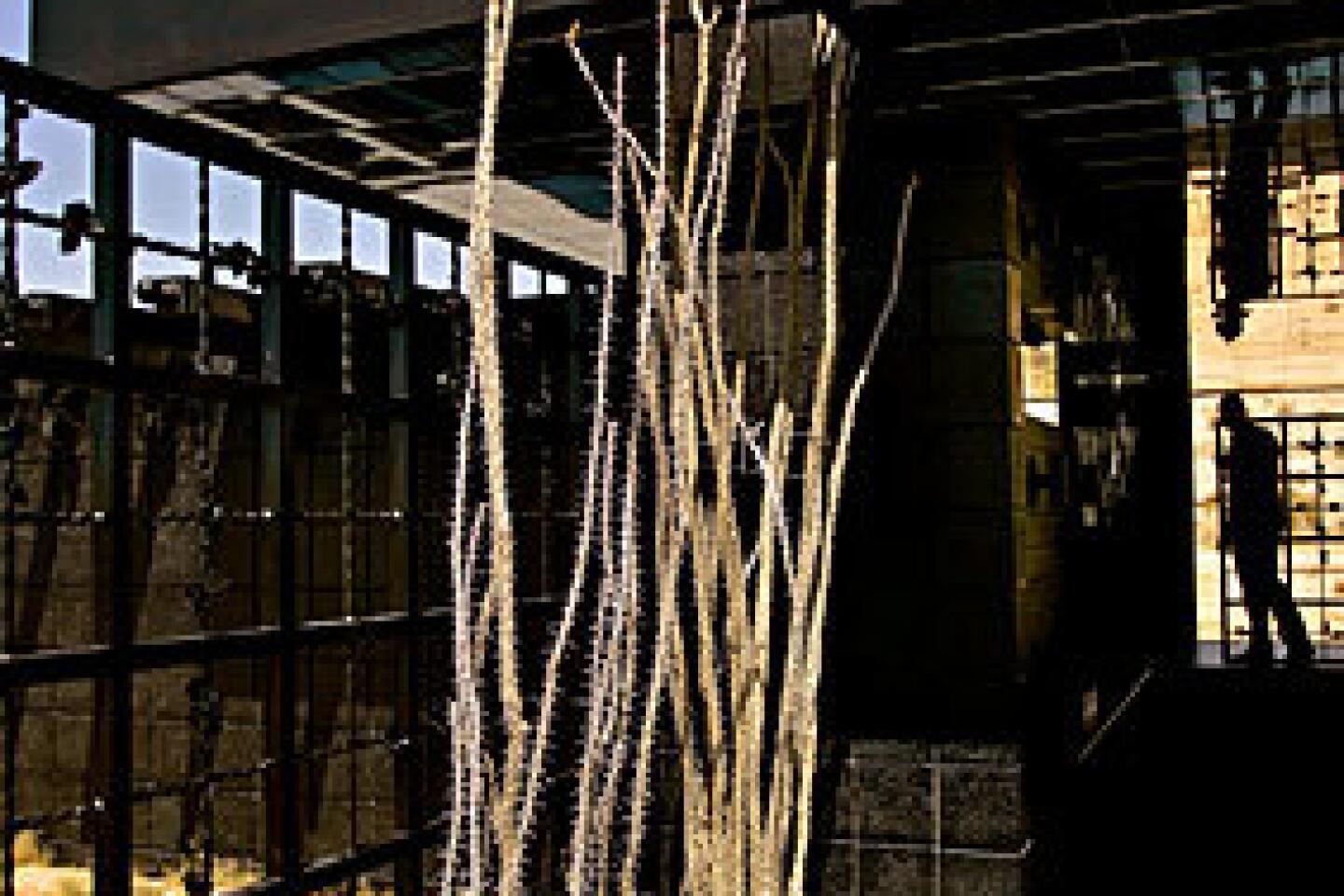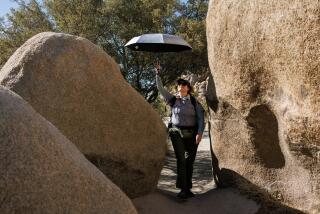The Rosa Muerta near Joshua Tree is an inspired ‘glamping’ spot
It has a roof -- albeit one that doesn’t enclose the building completely. And there are walls, although some might find the cinder block threaded with twisted rebar and wrapped with black metal roses somewhat curious. Yes, there’s a living room, if you want to call it that, with a fire pit, concrete benches and a 7-by-10-foot spa under a heart-shaped window (sans glass).
Here on the outskirts of Joshua Tree, the low-slung black pavilion is the brainchild of Robert Stone -- former punk rocker and studio artist, now architect. And if you haven’t yet figured it out, his one-bedroom desert dwelling -- Rosa Muerta, or Dead Rose -- doesn’t exactly conform to the prevailing fashions of modern architecture, nor is it a design stunt. “I’m not interested in big unconventional approaches to architecture,” says Stone, a Palm Springs-area native with a passion for restoring lowriders. He points out that his 1964 Ford Falcon’s sleek profile mirrors the open-air pavilion, which he calls an exercise in “glamping,” or glamorous camping.
“I think there is room in architecture for capturing the moment and local situations -- something both cultural and site specific. I’m developing my own language here.”
The project consists of four spaces -- living room, bedroom, kitchen and bathroom -- that are all black. Walls, ceiling and floor are pitch black. Ditto the stove, microwave, refrigerator, faucets, cabinets, toilet, light sconces, glass sinks, night stands, towels and bedspread. The 40-year-old architect -- with shaved head, flame tattoos shooting up his arm and “Punk and Freedom” emblazoned a bit higher up -- built the structure over three years, all by himself.
Working for his dad, a spec-home builder, he learned to plumb, paint, roof, run electrical lines, install septic tanks, pour concrete, fashion cabinets. “It’s the only way I could get to build what I want to build -- I’m the cheapest carpenter I know,” he quips.
Rosa Muerta sits in the middle of raw desert dotted with a few hairy-armed Joshua Trees. Stone rents it out to intrepid souls under his development Pretty Vacant Properties, named after the Sex Pistols song that he and financial partner John Anderholt repeatedly played in Stone’s Indian Wells garage years ago.
“This place is not for 99% of people,” the architect says. “It’s a rental house, but we ask more of people who come here. I’m creating a place for people to create their own experiences. It takes a bit of bravery. Each person has to figure out how to live in it.”
Five architects recently spent the day going over a PowerPoint presentation before kicking back, projecting a James Bond film onto a sheet hung on the wall and soaking in the spa that evening. Two restaurateurs brought BB guns and shot tin cans from the back patio, then posted their what-we-did-this-weekend high jinks on Flickr. Another couple took advantage of the isolated locale and amped up music until the wee hours of the morn.
“I don’t even know what people do out here,” Stone says. “I just clean up.”
And keeping the all-black building spic-and-span in the sandy environment is not an easy task. Stone is in an ongoing fight against the loose, gritty particles that seep into the open-structure’s inky-hued appointments. An array of textures -- the rough-clad cinder blocks, the mirrored bathroom sink -- are all but destined to collect dust. But black is an integral element to the architect’s project. “Black is a foil,” Stone explains. “People are the color -- they’re what bring it to life.”
The unusual structure recalls Stone’s earlier artwork, which often revolved around turning iconic, ubiquitous objects on their head. He reinterpreted the classic picnic table for the Echo, a funky club on Sunset Boulevard in Echo Park. Built-in ashtrays with black sand ran down the center of rough-hewn tabletops painted charcoal. Enlarged benches were positioned so clubgoers faced away from the table instead of toward it.
“Smoking is a nomadic activity,” Stone says. “You are always going away from things in order to smoke. Here you are gathering around something. It instigates social theater by creating crossing paths -- people lean over one another to use the ashtray. It brings strangers into contact.”
In another project, he altered concrete parking blocks by giving them a curved front and setting a steel pipe into the top edge, then he surreptitiously installed them in locations throughout Los Angeles. The objects quickly attracted skateboarders but went unobserved by property owners and passersby.
“My work is always all about creating an armature to create an activity,” he says. “I’m trying to look at how objects can engage a performance.”
Rosa Muerta may be his largest art project to date, but Stone insists that his pavilion is “serious modern architecture.”
Even with that big heart-shaped window above the steamy spa?
“I dare people to call that ornament. It’s custom made -- steel runs through it. It’s an integral part of the structure,” he says, bristling at the notion that most modern architects would scoff at the use of such iconography. Then in a less combative retort, he muses, “I’m slightly attracted to things I’m afraid of putting out there.”
Big pause.
“Flat out -- it’s about love, OK?” he says. “I’ve put my heart and soul into this project.”
More to Read
Sign up for The Wild
We’ll help you find the best places to hike, bike and run, as well as the perfect silent spots for meditation and yoga.
You may occasionally receive promotional content from the Los Angeles Times.
